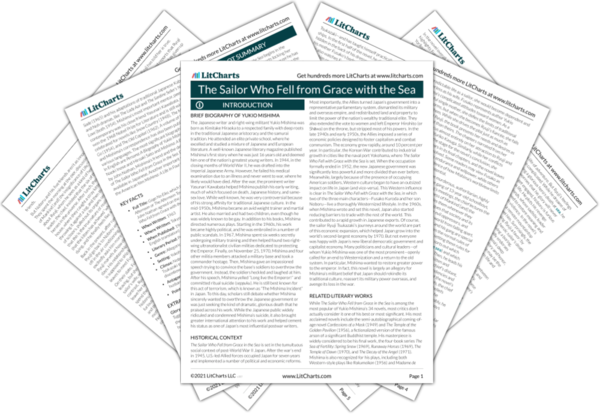The novel lurches back into the present. Fusako’s client, Yoriko Kasuga, represents the superficiality and mediocrity of the modern consumer culture that Mishima thinks the West imposed on Japan. She also serves as a character foil for Fusako: her selfishness and indifference highlights Fusako’s responsibility, elegance, and thoughtfulness. Of course, Fusako
also represents Japan’s drift toward Western influences, chiefly because of her line of work. But the novel suggests that her personality is still compatible with traditional, idealized notions about Japanese womanhood.
